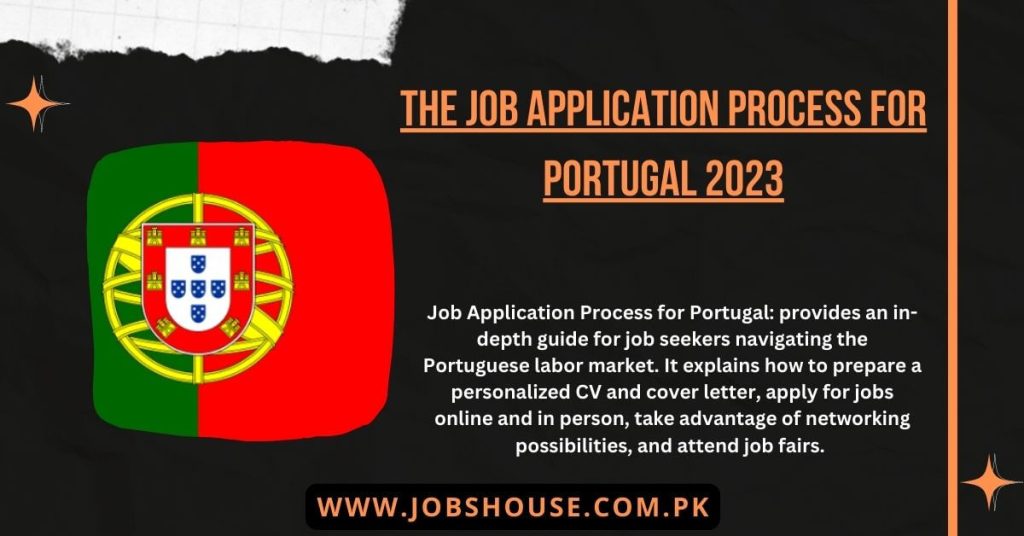Job Application Process for Portugal: provides an in-depth guide for job seekers navigating the Portuguese labor market. It explains how to prepare a personalized CV and cover letter, apply for jobs online and in person, take advantage of networking possibilities, and attend job fairs. The guide also emphasizes the value of language abilities, particularly Portuguese proficiency, in advancing one’s career. By following these tips, job seekers can approach the application process more effectively and boost their chances of landing suitable employment in Portugal.
Preparing your CV and cover letter
When applying for jobs in Portugal, a well-prepared CV and cover letter are required. Here are some pointers on how to write excellent documents:
CV: Keep your CV brief and well-organized, with a simple structure and legible font. Include your contact information, work history, educational background, and relevant skills. Highlight your successes and the precise abilities you employed for each employment. Customize your CV for each job application, highlighting the qualifications and experience that are most relevant to the post.
Cover letter: A strong cover letter should be tailored to the specific job for which you are applying and provide a compelling introduction to your candidacy. Explain why you want the job and how your abilities and experience make you an excellent candidate. Make sure to address any visa sponsorship requirements, demonstrating that you’ve done your homework and understand the employer’s responsibilities.

Applying for jobs online and in-person
There are various methods for applying for jobs in Portugal, both online and in person:
Online applications: Many businesses use online application systems, which may require you to create a profile, upload your CV and cover letter, and answer questions about your qualifications and visa sponsorship requirements.
Email applications: Some employers may prefer email applications, in which case you should attach your CV and cover letter and include a brief introduction in the email body. Use a professional email address and a concise subject line, such as “Application for [Job Title] – [Your Name].”
In-person applications: Some businesses may allow in-person applications, depending on the industry and job type. Bring hard copies of your CV and cover letter, and be prepared to discuss your qualifications as well as your visa sponsorship requirements.
Networking and attending job fairs
Networking may help you connect with possible employers, hear about job opportunities, and receive insights into the local employment market, making it a crucial tool in the job application process. Attend industry events, job fairs, and networking meetups in Portugal to develop your professional network. Prepare a brief “elevator pitch” on your qualifications and career objectives, and request business cards or contact information to follow up with new contacts.
Importance of language skills
While English is widely spoken in Portugal, particularly in business, knowing Portuguese can significantly improve your job prospects. Many employers prefer candidates who can effectively communicate in both English and Portuguese, as this demonstrates adaptability and a desire to integrate into the local culture. If you do not speak Portuguese fluently, consider taking language classes or using language-learning applications to improve your skills. Furthermore, knowledge of other languages, such as Spanish, French, or German, can be useful in certain industries and job roles.
Frequently Asked Questions
-
How to apply for a job in Portugal?
valid Portuguese residence visa
Proof of accommodation in Portugal.
valid passport.
Two passport photos in color -
Is it easy to get Work Permit in Portugal?
The processing time for a Portugal work visa might be lengthy, as SEF takes 60 days to process the work permit application. Furthermore, the Embassy may take up to three months to issue the entry visa. Processing time can be reduced under certain circumstances.